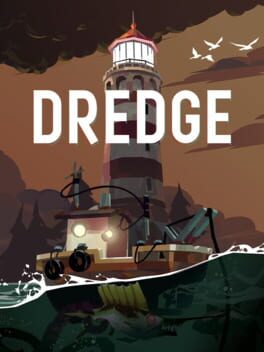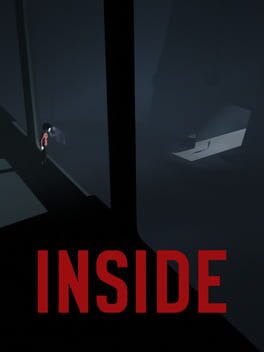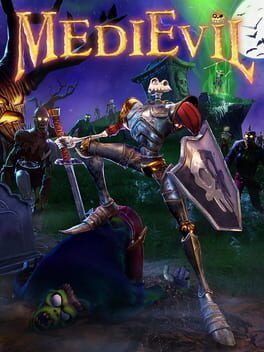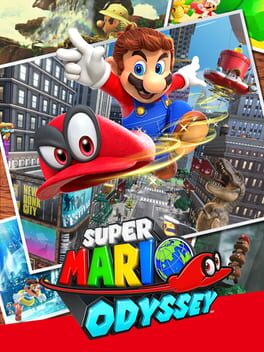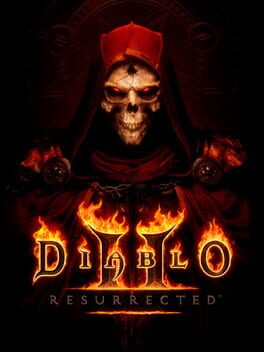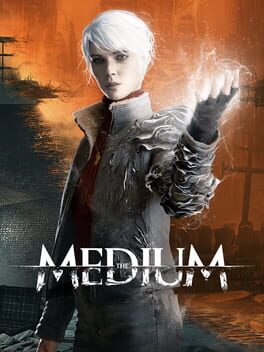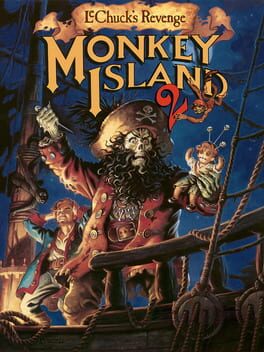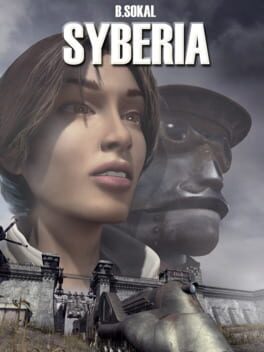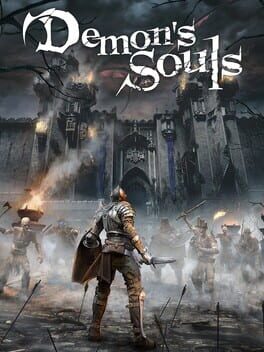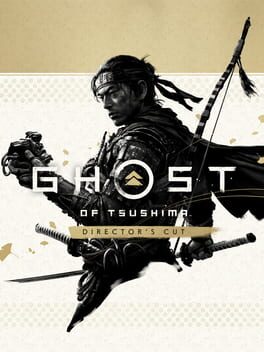x_manicure_x
1999
Despite the years passing, the first “Silent Hill” is still the best in the franchise and arguably my favorite psychological horror game out there. Most probably the first horror videogame to actually focus on atmosphere rather than taking a showy B-movie approach like "Resident Evil". There is something about that town that no one could recreate in later reiterations, not even the original team members succeded. The fog obstructing your view, the industrial sound effects, the haunting music, the memorable characters, the convoluted yet coherent plot full of occult references. The jump scares and horrific bits are timed perfectly, rarely resulting in cheap tricks. The art direction just had a depth that its competitors could have only dreamt of. The gameplay itself is not so different from the first couple of “Resident Evil” games, but the narrative approach and unique atmosphere manage to make the difference. The focus is more on exploration and puzzles rather than combat, with weird item combinations and detailed locations to explore with your map in hand. There are multiple endings to either reward or punish the player for the amount of effort they put into the game, even if most of the conditions required to get the good ending were far from obvious.
2023
A relaxing fishing experience intertwined with captivating elements of Lovecraftian horror. The gameplay mechanics are refreshingly uncomplicated, with a simple yet engaging task of timing button presses to catch fish, fitting everything in your inventory like in a Tetris game, and upgrading equipment. However, spending too much time out in the sea can lead to unsettling hallucinations, jeopardizing navigation and even exposing players to the threat of mysterious sea creatures.
The game is initially addictive, immersing the player in its unique atmosphere. Yet, it must be acknowledged that its depth may not sustain engagement beyond a few hours. While a diverse array of fish species awaits collection, the completion of main quests felt satisfying enough, leaving little desire to explore further. It is worth noting that although the game grants players immediate freedom to explore the whole map, adherence to the predetermined order of main quests becomes imperative, as specific equipment will be needed in the right order.
The game is initially addictive, immersing the player in its unique atmosphere. Yet, it must be acknowledged that its depth may not sustain engagement beyond a few hours. While a diverse array of fish species awaits collection, the completion of main quests felt satisfying enough, leaving little desire to explore further. It is worth noting that although the game grants players immediate freedom to explore the whole map, adherence to the predetermined order of main quests becomes imperative, as specific equipment will be needed in the right order.
2023
Having been a loyal fan of the "Final Fantasy" series for decades, I've witnessed and appreciated the various shifts and transformations that Square has undergone to evolve its franchise. While some of their experiments have borne fruit and others have stumbled, they've always exhibited a willingness to innovate and understand the market. However, "Final Fantasy XVI" stands out negatively not because of its shift towards action-oriented gameplay, but due to its failure to understand and meet contemporary industry benchmarks under all aspects except graphics.
First and foremost, it's difficult to categorize this as an action RPG, for it seems to lack any RPG element whatsoever. The main inspiration for the gameplay seems to be the last couple of “God of War” chapters, and I know it sounds like a joke to say that even those two games have more prominent RPG elements than “Final Fantasy XVI”. Not only there is no party other than a dog sidekick you can’t even customize or upgrade, but the skill tree is also ridiculous, and there are not even statuses or elemental strengths and weaknesses to add depth and strategy to the combat. Combat mostly boils down to button mashing and nervous dodging. There are macro-areas, but they are all empty with nothing to motivate the player to explore and collect loot. Sometimes you cross empty valleys and deserts to pick up 3 gils or a potion. The equipment, crafting, and shop system are barebone, further undermining the drive for loot or pre-battle strategizing. On top of that, there are no puzzles nor side activities other than hunting.
Alternatively, if we regarded it as a pure action game, the combat system is astonishingly rudimentary, failing to hold its own against titles like "Devil May Cry." There are no combos, no attack synergy, no variables.
The game does, however, excel in lore and world-building, though it's essential to note that major cities on the map remain inaccessible, experienced merely through battle sequences and cutscenes. A substantial portion of the map is also off-limits, owing to an in-game plague that destroyed most areas. The plot has been mentioned as one of the redeeming factors, but while I have to say it’s not bad, it doesn’t stand out enough to make the game worth playing. The writers' clear infatuation with "Game of Thrones" is evident in world-building and character design, yet the comparison paints "Final Fantasy XVI" as a simplified and juvenile rendition of Martin's world. Characters are largely one-dimensional, often presented in blocks before meeting their end as bosses in an arcade-like progression. Their interactions barely influence or alter the plot, which typically follows a pattern of introducing and defeating the villain of the week. Though the initial hours are tainted by predictable plot twists and stereotypical fantasy tropes, the overarching narrative gets dangerously close to the plot of "Tales of Arise" in its latter stages. The quality of cutscenes is laudable, especially during intense combat phases. The Eikon battles are sparse but reach a level of visual impact only comparable to the Greek gods battles in “God of War III”.
People have been bashing Final Fantasy XIII mostly for its linear nature, but now it seems that it’s not a big deal as far as it’s directed by Yoshida? At least Final Fantasy XIII was shorter and, most of all, more layered with its combat dynamics and RPG elements. “Final Fantasy XVI” might have been just as satisfactory if the good bits were condensed into a 10/15 hour experience. Alas, players are confronted with a 40+ hour ordeal, with at least three-quarters comprising verbose cutscenes that elucidate the obvious and drudging fetch quests.
I'll abstain from overly critiquing the sidequests, as they often hobble similar titles. Yet, it's ridiculous that completing the main plot necessitates engaging in quests like "talk to A, then relay A's message to B, report back to C, then return to A to report what you've heard from B and C. But don’t forget to get back to where B was to give him back this thing." Some quests even seem to challenge players' intelligence, like the one where you're tasked with investigating the disappearance of a girl working at a brothel. The mistress of the brothel gives you the quest, and she has two other employees. Speaking with one of them, right in front of you, yields all the answers required. Definitely a job we only could do, isn’t it? Another instance involves searching for a man who has gone missing in the forest, and, conveniently, he's to be found a few meters away from the entrance. There’s also a weird main quest where you must choose a partner to go and pick up sand at the beach or go shopping, which resolves in merely getting there and picking up the things, with no battle or revelatory dialogue whatsoever. What was the point of even choosing a partner?? Maybe these are things that may work when you fool around with friends in an MMO, but definitely not in a single-player experience already burdened with tedious tasks.
Pacing is further brought down by the purely Japanese custom of sandwiching dialogues, particularly quest-related conversations, between unskippable camera movements, fade-ins, fade-outs, accept buttons, congratulatory graphics, reward screens, little jingles, etc. This indicates a glaring lack of understanding of quality of life in a video game.
While "Final Fantasy XV" succumbed to its ambitions, the polar opposite dilemma plagues "Final Fantasy XVI." Understandably, Square had to play it extremely safe as the saga is in a precarious position, yet in a market inundated with "passive" generic experiences, it's doubtful that this entry will endure in memory after a couple of years.
First and foremost, it's difficult to categorize this as an action RPG, for it seems to lack any RPG element whatsoever. The main inspiration for the gameplay seems to be the last couple of “God of War” chapters, and I know it sounds like a joke to say that even those two games have more prominent RPG elements than “Final Fantasy XVI”. Not only there is no party other than a dog sidekick you can’t even customize or upgrade, but the skill tree is also ridiculous, and there are not even statuses or elemental strengths and weaknesses to add depth and strategy to the combat. Combat mostly boils down to button mashing and nervous dodging. There are macro-areas, but they are all empty with nothing to motivate the player to explore and collect loot. Sometimes you cross empty valleys and deserts to pick up 3 gils or a potion. The equipment, crafting, and shop system are barebone, further undermining the drive for loot or pre-battle strategizing. On top of that, there are no puzzles nor side activities other than hunting.
Alternatively, if we regarded it as a pure action game, the combat system is astonishingly rudimentary, failing to hold its own against titles like "Devil May Cry." There are no combos, no attack synergy, no variables.
The game does, however, excel in lore and world-building, though it's essential to note that major cities on the map remain inaccessible, experienced merely through battle sequences and cutscenes. A substantial portion of the map is also off-limits, owing to an in-game plague that destroyed most areas. The plot has been mentioned as one of the redeeming factors, but while I have to say it’s not bad, it doesn’t stand out enough to make the game worth playing. The writers' clear infatuation with "Game of Thrones" is evident in world-building and character design, yet the comparison paints "Final Fantasy XVI" as a simplified and juvenile rendition of Martin's world. Characters are largely one-dimensional, often presented in blocks before meeting their end as bosses in an arcade-like progression. Their interactions barely influence or alter the plot, which typically follows a pattern of introducing and defeating the villain of the week. Though the initial hours are tainted by predictable plot twists and stereotypical fantasy tropes, the overarching narrative gets dangerously close to the plot of "Tales of Arise" in its latter stages. The quality of cutscenes is laudable, especially during intense combat phases. The Eikon battles are sparse but reach a level of visual impact only comparable to the Greek gods battles in “God of War III”.
People have been bashing Final Fantasy XIII mostly for its linear nature, but now it seems that it’s not a big deal as far as it’s directed by Yoshida? At least Final Fantasy XIII was shorter and, most of all, more layered with its combat dynamics and RPG elements. “Final Fantasy XVI” might have been just as satisfactory if the good bits were condensed into a 10/15 hour experience. Alas, players are confronted with a 40+ hour ordeal, with at least three-quarters comprising verbose cutscenes that elucidate the obvious and drudging fetch quests.
I'll abstain from overly critiquing the sidequests, as they often hobble similar titles. Yet, it's ridiculous that completing the main plot necessitates engaging in quests like "talk to A, then relay A's message to B, report back to C, then return to A to report what you've heard from B and C. But don’t forget to get back to where B was to give him back this thing." Some quests even seem to challenge players' intelligence, like the one where you're tasked with investigating the disappearance of a girl working at a brothel. The mistress of the brothel gives you the quest, and she has two other employees. Speaking with one of them, right in front of you, yields all the answers required. Definitely a job we only could do, isn’t it? Another instance involves searching for a man who has gone missing in the forest, and, conveniently, he's to be found a few meters away from the entrance. There’s also a weird main quest where you must choose a partner to go and pick up sand at the beach or go shopping, which resolves in merely getting there and picking up the things, with no battle or revelatory dialogue whatsoever. What was the point of even choosing a partner?? Maybe these are things that may work when you fool around with friends in an MMO, but definitely not in a single-player experience already burdened with tedious tasks.
Pacing is further brought down by the purely Japanese custom of sandwiching dialogues, particularly quest-related conversations, between unskippable camera movements, fade-ins, fade-outs, accept buttons, congratulatory graphics, reward screens, little jingles, etc. This indicates a glaring lack of understanding of quality of life in a video game.
While "Final Fantasy XV" succumbed to its ambitions, the polar opposite dilemma plagues "Final Fantasy XVI." Understandably, Square had to play it extremely safe as the saga is in a precarious position, yet in a market inundated with "passive" generic experiences, it's doubtful that this entry will endure in memory after a couple of years.
Even though I wish there were more games like "Disco Elysium", I thought that its execution failed to live up to the compelling premise. Like "Kentucky Route Zero", it's one of those overrated indie games people praise to feel more intelligent than the average videogame nerd.
There's a misconception that fine writing has to be lengthy and convoluted at all costs, while it's quite the opposite. The best storytellers are the ones who can paint vivid sceneries and portray complex characters just with a few carefully chosen words. Instead, the writers behind "Disco Elysium" preferred to distract their readers with endless digressions, shoving an overwhelming amount of information down their throat and flirting with pompous and obsolete vocabulary. The overlong dialogues are not even functional to the plot, as the murder mystery requires no investigation or guessing on the player's end. You just walk along the only path available and talk to people till you bump into the random guy that did it. Your actions hardly have consequences, and your character build can only influence minor dialogue choices.
One might argue that it's not about the case; that's all about the journey and the characters. To me, it just felt like shallow philosophy and old-fashioned political commentary. I'm all in for depressive and self-destructive protagonists, but it hardly felt like the inner monologues were actual streams of consciousness, or the stats I assigned at the beginning actually helped shape his character. You can always be both the smartest and the dumbest guy person around, and even when you mess up, there's hardly any real consequence.
The Dungeons and Dragons-style skill checks are a fascinating addition to the gameplay, even though you can easily get around most of them by using drugs or wearing the outfit that buffs the correct stats. You are also allowed to save at any time and retry skill checks if you fail.
The presentation also needs improvement: even though I liked the oil painting graphics, there are no animations during most dialogues, with most actions only described with text. It's really like going through an interactive book with sound effects and music. The voice acting is also atrocious and way too slow, to the point that it made the dialogues feel even more overwhelming than they originally were.
Despite all the flaws, I still think it was worth the experience. The concept and main dynamics are definitely interesting, and hopefully the developers will work on improving the formula with their next projects.
There's a misconception that fine writing has to be lengthy and convoluted at all costs, while it's quite the opposite. The best storytellers are the ones who can paint vivid sceneries and portray complex characters just with a few carefully chosen words. Instead, the writers behind "Disco Elysium" preferred to distract their readers with endless digressions, shoving an overwhelming amount of information down their throat and flirting with pompous and obsolete vocabulary. The overlong dialogues are not even functional to the plot, as the murder mystery requires no investigation or guessing on the player's end. You just walk along the only path available and talk to people till you bump into the random guy that did it. Your actions hardly have consequences, and your character build can only influence minor dialogue choices.
One might argue that it's not about the case; that's all about the journey and the characters. To me, it just felt like shallow philosophy and old-fashioned political commentary. I'm all in for depressive and self-destructive protagonists, but it hardly felt like the inner monologues were actual streams of consciousness, or the stats I assigned at the beginning actually helped shape his character. You can always be both the smartest and the dumbest guy person around, and even when you mess up, there's hardly any real consequence.
The Dungeons and Dragons-style skill checks are a fascinating addition to the gameplay, even though you can easily get around most of them by using drugs or wearing the outfit that buffs the correct stats. You are also allowed to save at any time and retry skill checks if you fail.
The presentation also needs improvement: even though I liked the oil painting graphics, there are no animations during most dialogues, with most actions only described with text. It's really like going through an interactive book with sound effects and music. The voice acting is also atrocious and way too slow, to the point that it made the dialogues feel even more overwhelming than they originally were.
Despite all the flaws, I still think it was worth the experience. The concept and main dynamics are definitely interesting, and hopefully the developers will work on improving the formula with their next projects.
2016
“Inside” is an artsy and minimal puzzle platformer set in a dystopian world. You are basically running away from people who want to turn you into their lab rat while solving a series of environmental puzzles. One button to move forward, one to go backward, one to jump, and one to grab items. That’s all. Still, the gameplay is surprisingly varied as each area has different tasks, vehicles to ride and even other characters to move through mind-control.
Even more than Playdead’s previous game “Limbo”, “Inside” is worth playing for its interesting look and art direction rather than for the gameplay itself, which can be effortlessly completed in a couple of hours. People are still trying to figure out what the game was about, but I think the developers wanted to convey a particular atmosphere instead of telling a story.
Good for a free evening but definitely not a life-changing experience.
Even more than Playdead’s previous game “Limbo”, “Inside” is worth playing for its interesting look and art direction rather than for the gameplay itself, which can be effortlessly completed in a couple of hours. People are still trying to figure out what the game was about, but I think the developers wanted to convey a particular atmosphere instead of telling a story.
Good for a free evening but definitely not a life-changing experience.
2019
Sir Daniel Fortesque was my childhood hero, and I definitely enjoyed playing "MediEvil" again after so many years. It reminded me why I liked it so much when I was little: the quirky characters, the Burtonesque art direction, and an impressive variety of locations and enemies for its time.
This remake is visually gorgeous and leaves the atmosphere of the original intact., but the gameplay and level design are carbon copy. I understand that there was probably not much budget, but all we get are the exact same mechanics of a PSOne game with minor tweaks and revamped graphics. The combat system and camera are as rough and clunky as they were in the nineties, as if the developers had no ambition to improve our gaming experience. As I like old-fashioned games it was not a big problem for me, but there is no way the franchise will attract new fans in 2019.
This remake is visually gorgeous and leaves the atmosphere of the original intact., but the gameplay and level design are carbon copy. I understand that there was probably not much budget, but all we get are the exact same mechanics of a PSOne game with minor tweaks and revamped graphics. The combat system and camera are as rough and clunky as they were in the nineties, as if the developers had no ambition to improve our gaming experience. As I like old-fashioned games it was not a big problem for me, but there is no way the franchise will attract new fans in 2019.
2017
Here comes another Mario entry that sets a new standard for 3D puzzle platformers. Mario's new ability to "possess" different creatures and objects with unique abilities keeps the gameplay fresh and highly varied. Each kingdom has its own unique level design, and despite the limited size of the maps, they can keep you busy for hours looking for collectibles. While the amount of moons needed to continue your journey is ridiculously low, 100% completion can become highly frustrating. I would prefer a more challenging campaign and more accessible endgame content.
I have fond memories of playing the original "Diablo II" at my friend's house in elementary school, as my parents wouldn't buy me the game. We would replay act one over and over again, and we'd always get stuck in act two. Years later, I got my hands on "Diablo III" on PS3, but it quickly lost its luster for me. It just felt like it wasn’t worth the limited time I had to play on consoles. However, when I saw this “Diablo II” remake available for Switch, I knew I had to give it a chance.
Even though I don’t think I got any of the plot, the gameplay loop is so addictively simple that I started from killing time with it to desperately finding time to play with it.
While the graphics are vastly improved, the tiny character models make it difficult to fully appreciate the visual overhaul on mobile consoles. Despite that, I still enjoyed playing as a Necromancer (as usual). Even though I had to spam potions in the late chapters, I found the game to be relatively easy to complete, with the exception of Baal and Duriel.
The game's mechanics and progression system have aged well, and the new quality-of-life features make it more accessible to newcomers.
Even though I don’t think I got any of the plot, the gameplay loop is so addictively simple that I started from killing time with it to desperately finding time to play with it.
While the graphics are vastly improved, the tiny character models make it difficult to fully appreciate the visual overhaul on mobile consoles. Despite that, I still enjoyed playing as a Necromancer (as usual). Even though I had to spam potions in the late chapters, I found the game to be relatively easy to complete, with the exception of Baal and Duriel.
The game's mechanics and progression system have aged well, and the new quality-of-life features make it more accessible to newcomers.
Even a decade later, "Dark Souls" can still be recommended as a solid action RPG with fascinating art direction and remarkable level design. I was planning to play it on Switch to make my train rides more tolerable, but I literally couldn't take my hands off it.
Exploration is what motivated me the most: figuring out how all areas are interconnected and playing around with the loot you find at each corner really makes you feel like you are allowed to approach the game the way you like. While "Demon's Souls" had six separate areas with their own linear progression, "Dark Souls" lets us enjoy free-roaming across a continuous map made of different biomes. Even though you are technically allowed to get anywhere, keys dropped by bosses are needed to open most locations, probably as a way to make sure you won't get into the most dangerous areas too early. I wish fast travel could be unlocked earlier, though. The only way to figure out the best way to go without a walkthrough is to travel across the map multiple times and assess the difficulty of each area, so fast travel would have definitely smoothened the process.
It would be impossible to objectively assess the game's overall difficulty, as everyone's hardest Souls game is always their first. It just takes some time to learn how to play and, especially, how to spend your experience points. Still, "Dark Souls" felt like one of the easiest in the series - I could tank the hell out of most enemies with the possible exception of the DLC bosses. For the most part, it's dodge, double hit, back off, repeat. The game requires trial and error and careful risk assessment, but most areas were relatively smooth to clear. Just make sure to buy curse healing items before getting into The Depths and farm poison healing items before Blighttown. Those debuffs nearly caused me a nervous breakdown.
The only thing that actually felt unfair is how enemies manage to hit you through walls and doors while you can't. The combat and gameplay are almost the same as "Demons Souls" (clumsiness included), with "humanity" acting as a more accessible debuff than the "soul" form, and the possibility to refill your healing flasks at checkpoints so that you won't need to farm for herbs and potions.
The setting and lore are incredibly fascinating, but there is not much plot going on as you play. The ending, in particular, felt a little too underwhelming after all the time spent on the game. The NPC quests are also way too hard to understand unless you search for tips on the internet.
The user interface is, as always, too cryptic. It's true that most people (including myself) wouldn't even bother reading tutorials even if they were available, but figuring out the meaning of each stat and symbol can really help overcome most challenges. Of course, it's never been a huge issue as lots of guides and resources are available online, but what if the Souls series stayed a niche sensation?
The Switch port was alright, even though I only played in handheld mode. The framerate is not rock solid, but it hardly ruined my experience.
Exploration is what motivated me the most: figuring out how all areas are interconnected and playing around with the loot you find at each corner really makes you feel like you are allowed to approach the game the way you like. While "Demon's Souls" had six separate areas with their own linear progression, "Dark Souls" lets us enjoy free-roaming across a continuous map made of different biomes. Even though you are technically allowed to get anywhere, keys dropped by bosses are needed to open most locations, probably as a way to make sure you won't get into the most dangerous areas too early. I wish fast travel could be unlocked earlier, though. The only way to figure out the best way to go without a walkthrough is to travel across the map multiple times and assess the difficulty of each area, so fast travel would have definitely smoothened the process.
It would be impossible to objectively assess the game's overall difficulty, as everyone's hardest Souls game is always their first. It just takes some time to learn how to play and, especially, how to spend your experience points. Still, "Dark Souls" felt like one of the easiest in the series - I could tank the hell out of most enemies with the possible exception of the DLC bosses. For the most part, it's dodge, double hit, back off, repeat. The game requires trial and error and careful risk assessment, but most areas were relatively smooth to clear. Just make sure to buy curse healing items before getting into The Depths and farm poison healing items before Blighttown. Those debuffs nearly caused me a nervous breakdown.
The only thing that actually felt unfair is how enemies manage to hit you through walls and doors while you can't. The combat and gameplay are almost the same as "Demons Souls" (clumsiness included), with "humanity" acting as a more accessible debuff than the "soul" form, and the possibility to refill your healing flasks at checkpoints so that you won't need to farm for herbs and potions.
The setting and lore are incredibly fascinating, but there is not much plot going on as you play. The ending, in particular, felt a little too underwhelming after all the time spent on the game. The NPC quests are also way too hard to understand unless you search for tips on the internet.
The user interface is, as always, too cryptic. It's true that most people (including myself) wouldn't even bother reading tutorials even if they were available, but figuring out the meaning of each stat and symbol can really help overcome most challenges. Of course, it's never been a huge issue as lots of guides and resources are available online, but what if the Souls series stayed a niche sensation?
The Switch port was alright, even though I only played in handheld mode. The framerate is not rock solid, but it hardly ruined my experience.
2021
Old-school survival horror games clearly inspired by Silent Hill. The difference is that there is no combat, and the dynamics are mostly based on puzzles to be solved between two realities. I don’t mind the clunky controls, but for a game that is entirely based on puzzles, it’s excruciatingly boring to find out that the solutions always lie a few steps away. When you get stuck, it’s because the map is not clear, or because the controls are not working properly. Eventually, it all turns into a walking simulator with a mediocre plot and an intriguing steamy atmosphere as the only element worth the journey. Although I wouldn’t have called it a negative experience, the stupid ending was the final nail in the coffin.
Despite being bigger in scope and more ambitious (ambiguous?) with its storytelling, I must confess that “Monkey Island 2: LeChuck’s Revenge” didn’t deliver the same magic as its predecessor. It goes along the same lines and is objectively more fleshed out in most aspects, yet it felt slightly stale for my taste. Maybe bringing LeChuck back wasn’t a great idea after all? Don’t get me wrong, it was a lot of fun – but I have a feeling that everyone’s favorite Monkey Island is always going to be the first they played (unless it was the fourth one, obviously).
Also, I think they went a little too overboard with the illogical puzzles. The game lets you travel around three islands for a much less linear approach, meaning you have more locations and items to keep in mind and deal with simultaneously. If you forget about one detail or an interactive point of the map, you’re pretty much funked. One puzzle that starts on one island might end on another, with at least four or five intermediate steps to be taken going back and forth between different locations. I remember getting stuck for months trying to find all the map pieces, and the payoff was quite underwhelming. The ending was one of the most controversial of its time, and even though it fits the overall tone of the series, it felt like it came out of nowhere with no connection to what we had seen up to that point.
Also, I think they went a little too overboard with the illogical puzzles. The game lets you travel around three islands for a much less linear approach, meaning you have more locations and items to keep in mind and deal with simultaneously. If you forget about one detail or an interactive point of the map, you’re pretty much funked. One puzzle that starts on one island might end on another, with at least four or five intermediate steps to be taken going back and forth between different locations. I remember getting stuck for months trying to find all the map pieces, and the payoff was quite underwhelming. The ending was one of the most controversial of its time, and even though it fits the overall tone of the series, it felt like it came out of nowhere with no connection to what we had seen up to that point.
2002
2020
"Demon's Souls" definitely requires patience, cold blood, and hours of internet research, but it was much more enjoyable than I expected. The first few hours were a little traumatic, but once I got familiar with the dynamics and found the right build for my playing style, I finally started to genuinely enjoy the challenges the game was putting me through. I even thought about going for platinum, but New Game+ was just too much for me to handle. The bosses are actually not too hard for a Soulslike, but the way to them can be a nightmare. I still get the feeling that the game rewards you more for creating the right build rather than for improving your skills, but that's probably the case for most action RPGs. The battle system is as clunky and outdated as you would expect from a PS3 remake, but at least Bluepoint managed to maintain a remarkably steady 60fps throughout and delivers the most gorgeous graphics ever witnessed in a souls.
Things might feel relatively simple at first, but a lot of depth is given by how the character's death influences the gameplay. Every time you get killed, you get stuck into your "soul form" and have to beat the next boss to get your body and maximum health back. Killing or being killed also influences "tendencies", variables that affect difficulty, rare item drop rate, and even the appearance of certain enemies and NPC's.
Online interaction with randomly selected players also has a considerable impact on the gameplay: you can invade other characters' worlds to mess around, summon people to your world for help, or make yourself available for other players. During your single-player session you can also find lots of hints and messages left by other players, as well as bloodstains that show you the ways they died. While these aspects made the original "Demon's Souls" innovative back in the days, I still have mixed feelings about the co-op mode. The game is definitely too hard for you alone, but gets way too easy once someone joins you. Sure, you may risk losing your body form and affect your world tendency, but most of the players I summoned were on a much higher level and even able to take down enemies alone with me just watching.
Heads up to Bluepoint for the work on the graphics, which really do justice to the Berserk-reminiscent, dark fantasy atmosphere of the original. Human characters could have looked a little better, but the work on the environments and fantastic creatures is flawless.
Things might feel relatively simple at first, but a lot of depth is given by how the character's death influences the gameplay. Every time you get killed, you get stuck into your "soul form" and have to beat the next boss to get your body and maximum health back. Killing or being killed also influences "tendencies", variables that affect difficulty, rare item drop rate, and even the appearance of certain enemies and NPC's.
Online interaction with randomly selected players also has a considerable impact on the gameplay: you can invade other characters' worlds to mess around, summon people to your world for help, or make yourself available for other players. During your single-player session you can also find lots of hints and messages left by other players, as well as bloodstains that show you the ways they died. While these aspects made the original "Demon's Souls" innovative back in the days, I still have mixed feelings about the co-op mode. The game is definitely too hard for you alone, but gets way too easy once someone joins you. Sure, you may risk losing your body form and affect your world tendency, but most of the players I summoned were on a much higher level and even able to take down enemies alone with me just watching.
Heads up to Bluepoint for the work on the graphics, which really do justice to the Berserk-reminiscent, dark fantasy atmosphere of the original. Human characters could have looked a little better, but the work on the environments and fantastic creatures is flawless.
2001
"Silent Hill 2" couldn't beat the atmosphere of the original "Silent Hill", but will always be remembered for its shift to a more mature, psychological storytelling and the astonishing leap in graphics and animation. The plot is simple and straight to the point, there is not much dialogue this time, and most side characters appear pretty much for no real purpose if not to lure James to the next location. The writing is alright: it's not anywhere near, to quote another Konami title, Metal Gear Solid, but was still enough to set it aside from other similar-themed games of its generation. The dialogues are a bit awkward, but let's say that the cheesy voice acting did not help. The real thing that stood out and couldn't be found in previous horror games is the psychological twist the plot takes towards the end. It was a mind-blowing choice at the time, and totally changed the way you perceived the events up to that point.
The only problem was the stiff and clunky gameplay, which felt a generation old and not much of an upgrade from the first "Silent Hill." The combat system takes no skill or strategy, and makes you tired of fighting incredibly quickly. Harder difficulty settings are exceptionally tedious as it takes a billion bullets to kill monsters. The screen also takes a few seconds to load completely, allowing the monsters to hit you several times before you can do anything.
The only problem was the stiff and clunky gameplay, which felt a generation old and not much of an upgrade from the first "Silent Hill." The combat system takes no skill or strategy, and makes you tired of fighting incredibly quickly. Harder difficulty settings are exceptionally tedious as it takes a billion bullets to kill monsters. The screen also takes a few seconds to load completely, allowing the monsters to hit you several times before you can do anything.
I enjoyed "Ghost of Tsushima" even though it had the same issues as another open-world Play Station exclusive: "Horizon Zero Dawn". Fighting enemies and exploring the map is always fun, but I couldn't care less about the plot and characters. This time there is not even a mystery to unfold or different creatures to spice up the combat mechanics. Even though nobody expected a complex story full of multifaceted characters, a more cinematic direction would have made an enormous difference. It's like watching the watered-down version of a mediocre samurai flick, with static camerawork, redundant dialogue, and poor acting. The characters introduced by the side-quests were interesting, but their storylines develop too slowly and eventually lack closure. I wonder if the people who compared it with Kurosawa actually watched any of his movies.
The gameplay loop is the same as most open-world action games. It's the same dozen activities being repeated over and over again, but each of them only takes a few seconds to complete so that you won't get stuck in the same area for too long. The low level of challenge and instant loading times also help keep the experience fluid and strangely relaxing.
The combat system might feel tedious at first, but things get better after you start unlocking new stances and sub-weapons. The enemy AI is incredibly dumb, though, especially during stealth sections.
As with most open-world games, graphics and animations tend to be uneven. While the character design and facial animations felt like they could be better, most of the landscapes are mind-blowingly beautiful, to the point that they become the real reason you feel like exploring every corner of the island. It's the same buildings and assets rehashed all over the map, but it's understandable considering the realistic approach they took with the game.
Recommended only if you are into feudal Japan and open-world games.
About the DLC: Even if you enjoyed the gameplay loop of the main game, I would advise you to wait for a few months before starting this DLC as it's basically more of the same. It adds a whole new island to explore, a couple of new abilities, and a few new interactive activities like archer challenges, wooden sword tournaments, and flute playing. Unfortunately, the plot doesn't add anything new despite its premise of looking back at Jin's past and the ambiguities of his father. It felt like they tried a little harder with cinematics, though.
The gameplay loop is the same as most open-world action games. It's the same dozen activities being repeated over and over again, but each of them only takes a few seconds to complete so that you won't get stuck in the same area for too long. The low level of challenge and instant loading times also help keep the experience fluid and strangely relaxing.
The combat system might feel tedious at first, but things get better after you start unlocking new stances and sub-weapons. The enemy AI is incredibly dumb, though, especially during stealth sections.
As with most open-world games, graphics and animations tend to be uneven. While the character design and facial animations felt like they could be better, most of the landscapes are mind-blowingly beautiful, to the point that they become the real reason you feel like exploring every corner of the island. It's the same buildings and assets rehashed all over the map, but it's understandable considering the realistic approach they took with the game.
Recommended only if you are into feudal Japan and open-world games.
About the DLC: Even if you enjoyed the gameplay loop of the main game, I would advise you to wait for a few months before starting this DLC as it's basically more of the same. It adds a whole new island to explore, a couple of new abilities, and a few new interactive activities like archer challenges, wooden sword tournaments, and flute playing. Unfortunately, the plot doesn't add anything new despite its premise of looking back at Jin's past and the ambiguities of his father. It felt like they tried a little harder with cinematics, though.

